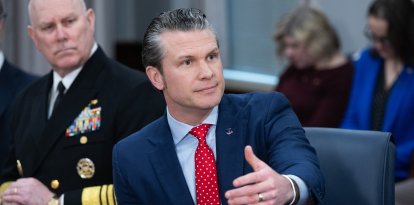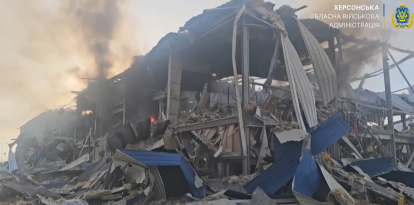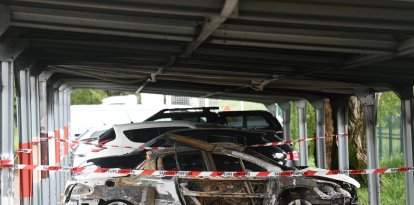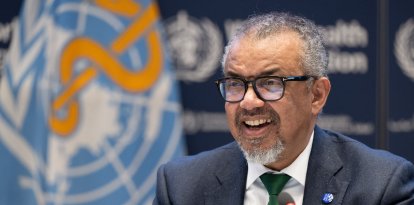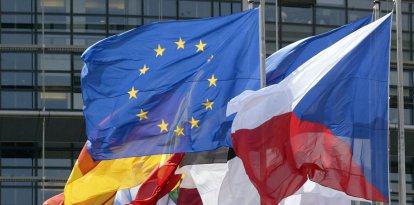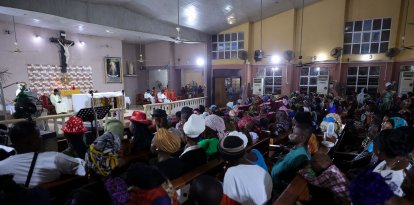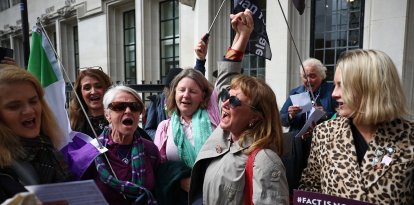Putin guarantees his power until 2030 after winning in a new electoral farce
After 50% of the votes were counted, Russian election officials announced that the president had been reelected with 87.3% of the votes.
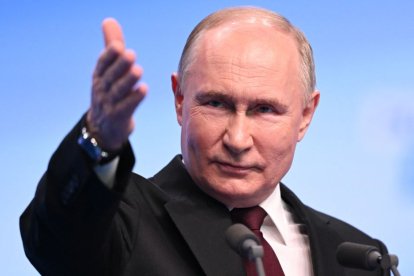
Vladimir Putin ( Natalia Kolesnikova / Pool/ AFP)
Vladimir Putin strengthened his dominance over Russia by securing another six-year presidential term in an election that has been widely criticized for eliminating his main rivals before the start of the race.
With just 50 percent of the votes counted, election officials have already declared Putin's victory, noting that he won with an impressive 87.3 percent of the vote, marking the highest vote share among his five election victories since 2000.
According to Russian authorities, participation also reached a historical record, with 74% of the electorate going to the polls. In comparison, Putin's previous highest result was recorded in 2018, when he won 76.7% of the vote with a turnout of 67.5%.
From the beginning of the electoral cycle, Putin was presented as the undisputed national leader, far above any potential rival. The other three candidates also refrained from criticizing the president, further highlighting his dominance in the political sphere.
The three days of voting transformed into a pro-Putin mobilization exercise, where Russian citizens faced intense pressure to support the leader and the state regime. This pressure was accentuated by strict supervision that included public sector employees, students, and workers in Russian companies, who were urged, and even sometimes forced, to cast their vote.
International observers have denounced a series of irregularities and coercion. However, Putin has secured his grip on power, suggesting that his influence will continue to dominate the Russian political scene for years to come.
An official celebration to commemorate Putin's victory is expected on Monday and many consider this an event that marks a new chapter in Russia's political history, one characterized by an even firmer grip on power by the president.
Unfair elections
The White House lashed out at the Russian elections, declaring that they were "obviously not free nor fair," noting that President Putin has imprisoned political opponents and hindered the participation of other candidates against him.
The German Foreign Ministry also expressed its opinion on the election results, stating that they "would not surprise anyone." "The government of Putin is authoritarian and relies on censorship, repression and violence," the ministry wrote in a statement on its official X account. Furthermore, the ministry added that the "elections" in the occupied territories of Ukraine are invalid and represent another flagrant violation of international law.
Protests
According to official sources, incidents were recorded during the elections where some voters poured ink into the ballot boxes or tried to start fires, resulting in at least fifteen criminal proceedings. Other citizens opted for more discreet methods, such as voting at 12:00 to generate long lines or writing messages on the ballots.
Among the messages written on the ballots, expressions such as "Thief and murderer, no to war" or "Murderer, you will never win. Glory to Ukraine!" reveal the discontent of some voters. These messages, reported by the independent media Novaya Gazeta Europe, refer to two main concerns during the electoral process: the continuing war in Ukraine and the recent death in prison of dissident Alexei Navalny.
Communist congratulations
One of Putin's staunchest allies, the Chinese communist regime, celebrated the Russian president's victory at the polls and congratulated him on continuing at the helm of the Kremlin for another term. "China expresses its congratulations. We are convinced that, under the strategic leadership of President Xi Jinping and President Putin, China-Russia relations will continue to make progress," said Lin Jian, Foreign Ministry spokesman, in statements picked up by AFP.
Those who also celebrated Putin's victory were Miguel Díaz-Canel and Nicolás Maduro. While his country is in a situation totally overwhelmed by the lack of food, among other resources, the President of Cuba published a message on social networks congratulating his Russian counterpart:
For his part, the Venezuelan president used the same channel as Díaz-Canel to celebrate Putin's victory:
The West: the elections were "neither free nor fair."
The response from the West to Putin's electoral victory was totally contrary. One of the first countries to do so was Germany which, through its Ministry of Foreign Affairs, described the Russian elections as "neither free nor fair":
France also expressed its total rejection of Putin's continuity at the head of the Kremlin. The government of Emmanuel Macron issued a statement picked up by AFP repeating the words written by Germany and in which it applauded the Russians who demonstrated peacefully as a sign of rejection to the victory of the Russian leader:
The head of European diplomacy, Josep Borrell, reiterated the lack of freedom in a Russian election that "was based on repression and intimidation":
RECOMMENDATION

